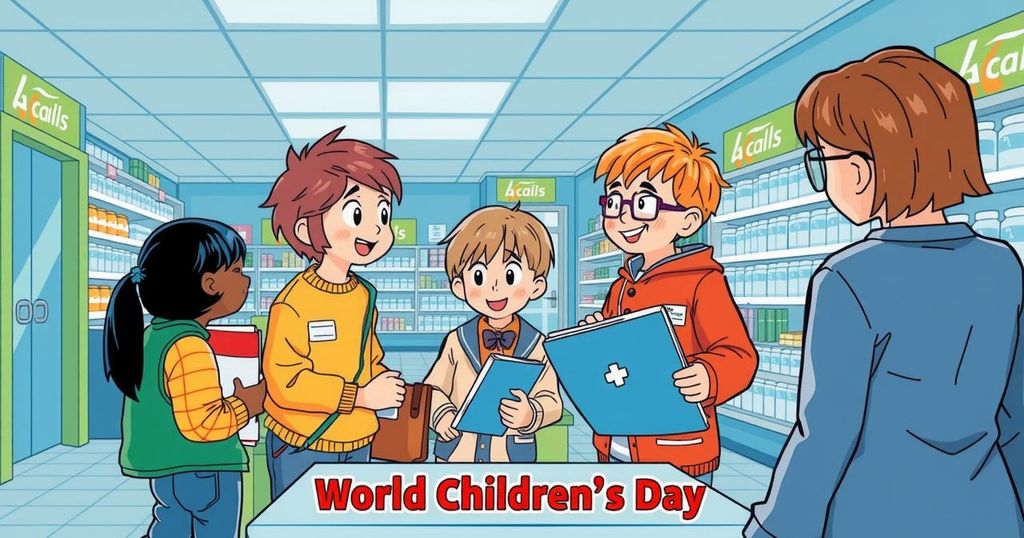The article discusses critical issues surrounding World Children’s Day, including the plight of children in Middle Eastern conflicts, political reflections from the 2024 elections, the decline of community drugstores, and the need for enhanced primary healthcare investment. Contributors emphasize the importance of re-evaluating American identities and priorities, calling for community-focused action and engagement within the political sphere.
In commemoration of World Children’s Day, there exists a poignant call to action regarding the ongoing conflict in the Middle East. The potential Senate vote on Senator Bernie Sanders’ resolutions, aimed at limiting U.S. military aid for weapons that cause significant harm, merits both attention and support. Although, the likelihood of passage appears minimal, it indicates a broader societal recognition of the need to cease hostilities impacting vulnerable populations. The reflections on recent elections highlight a spectrum of perspectives on national fulfillment and identity. Notably, some citizens view the optimism surrounding American capabilities as overshadowed by the stark realities facing many citizens today. Concerns about the decline of community drugstores, termed “pharmacy deserts,” echo broader issues within the U.S. healthcare system, where inadequate investments in primary care exacerbate health disparities. Furthermore, with the imminent 2024 elections looming, the political landscape emerges as a complex interplay of vested interests dominated by billionaire benefactors, prompting critical reflection on the genuine representation of the electorate’s needs and values. Americans are thus urged to lend an ear to emerging voices advocating for truth and action, with a collective hope for a future where policy decisions prioritize community health and well-being. The sentiment echoes across various contributors as they grapple with an evolving national identity amid political turmoil and societal challenges. This discourse serves as a clarion call for attentive civic engagement, with an emphasis on addressing both local and national concerns through compassion, understanding, and concerted action.
The discourse encapsulates several pressing issues including the humanitarian crisis in the Middle East, the erosion of local pharmacies, the ramifications of the recent elections in shaping American values, and the overarching concern regarding healthcare access in local communities. World Children’s Day provides a poignant backdrop for discussions centering on children affected by war, while the anticipated Senate resolutions propose a critical reevaluation of military aid impacting those communities. Furthermore, the decline of drugstores brings attention to the systemic underinvestment in primary care, highlighting the consequential health disparities stemming from inadequate healthcare policies. As the 2024 elections approach, the narratives underscore a growing disconnect between elected officials and their constituents, spurred by the influence of wealthy interests in shaping policy outcomes. In reflecting on these myriad concerns, contributors urge collective action aimed at restoring the primacy of community needs and values, emphasizing the essential nature of public discourse in shaping a more inclusive and supportive society.
In conclusion, the dialogues reflect a collective yearning for reconciliation amongst conflict, a deeper understanding of societal health needs, and an open examination of America’s political landscape. Contributors advocate for a comprehensive reevaluation of priorities, underlined by the pressing need for local healthcare support and the active involvement of citizens in the electoral process. As the country navigates through these multifaceted challenges, the participation and voices of the populace remain paramount in crafting solutions that resonate with the core values of equity, compassion, and community well-being. The calls for agency and reflection serve as reminders of the potential for transformative change rooted in accountability and genuine representation.
Original Source: www.startribune.com






